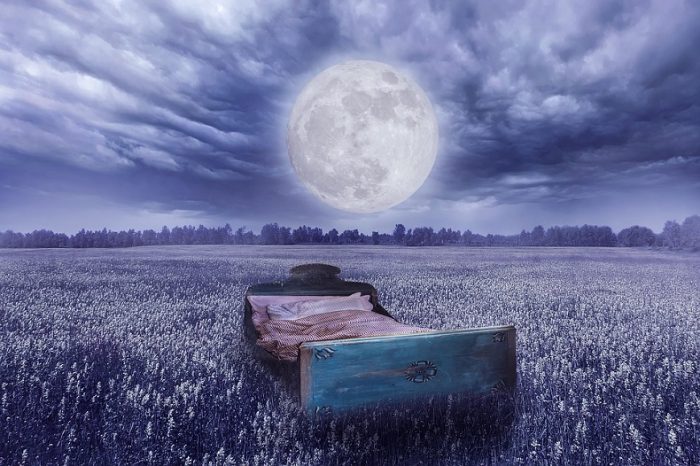We often hear, “The moon must be full!” when people try to explain their out-of-the ordinary behaviour at certain times of the month—and particularly when feeling anxious, irritable, or unable to deeply sleep.
It is commonly known that the moon is responsible for disturbances in sleep patterns, and one study carried out by the Psychiatric University Hospital (UPK) at the University of Basel in Switzerland found that around the full moon there was a decrease by 30 percent in electroencephalogram (EEG) delta activity during NREM sleep, which is an indicator of deep sleep. The study also showed an increase of five minutes in the time it took the subjects to fall asleep during a full moon, and a decrease in the quality of sleep.
The researchers also discovered that melatonin levels were lower for up to four days around the full moon, compared to the other lunar phases, suggesting the moon could affect our sleep four days before and four days after the moon is at its brightest stage. Overall, the people who were studied slept around 19 minutes less during the full moon than they did on a new moon, when the sky is at its darkest.
The study mentions the fact that there is more evening light during the full moon, suggesting that lower melatonin levels, due to the absence of darkness, could be a main indicator. This is because our circadian (daily) and circannual (seasonal) rhythms keep close track of subtle changes, so when the world we live in alters, our body patterns alter with it.
The majority of people who are affected by the full moon seem to sleep fine during other evenings in the summer months, when the moon is not full but the sky is still brightly lit at night due to later sunsets. Therefore, it appears that sleep disturbance is not so much to do with the evenings being lighter, but more likely to be correlated to a peak in light during the month, which temporarily disturbs our circadian rhythm.
The study also stated that the moon’s connection to sleep is “mysterious,” explaining that: “there are probably large individual differences that underlie the contradictory evidence for their existence—some people may be exquisitely sensitive to moon.”
Being unable to sleep deeply during a full moon isn’t simply due to knowing the moon is full, as there are many people who claim not to follow moon cycles, but when they find themselves unable to sleep, they research and discover that yet again the moon is shining full in the sky.

No comments:
Post a Comment